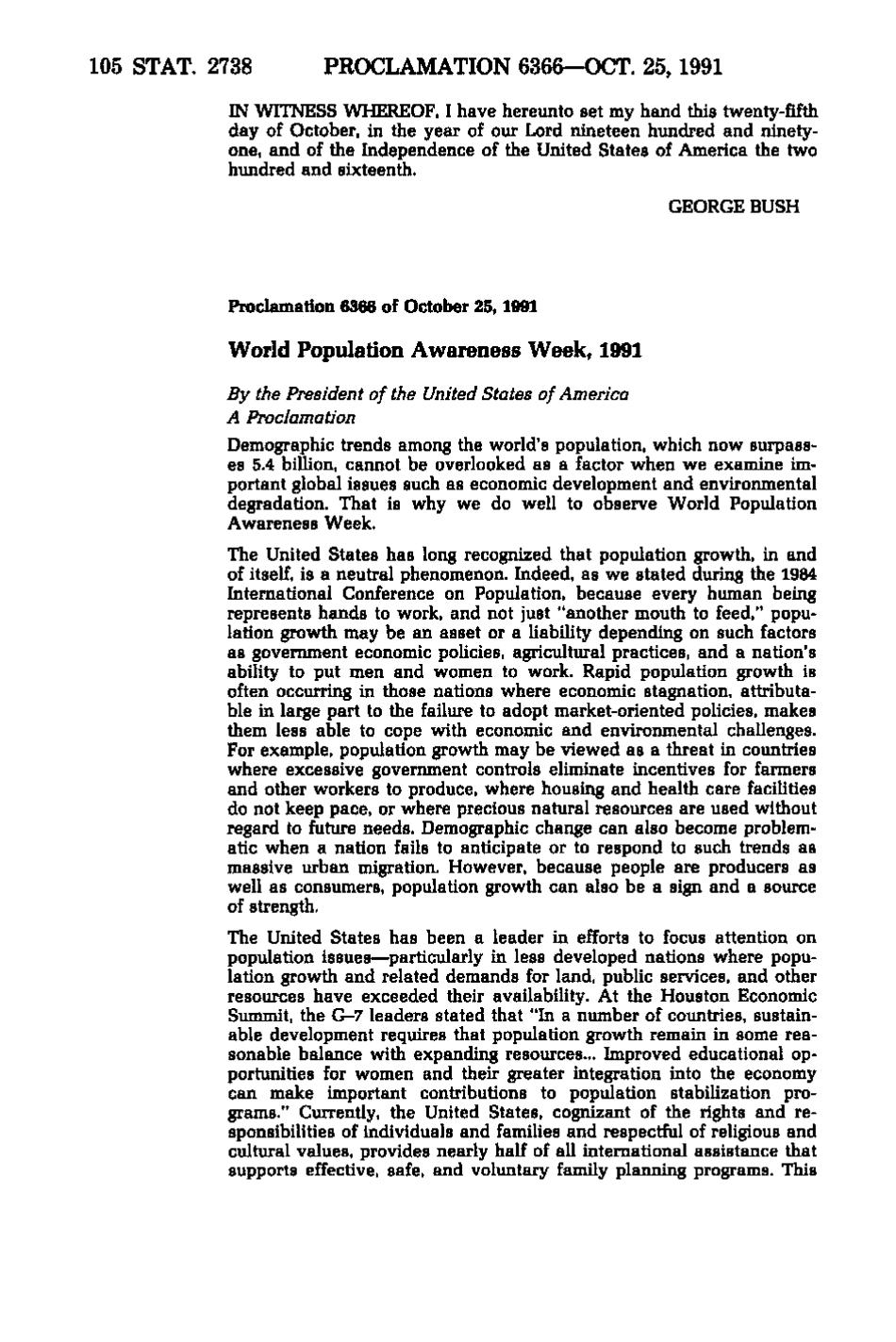105 STAT. 2738 PROCLAMATION 6366—OCT. 25, 1991 IN WITNESS WHEREOF, I have hereiinto set my hand this twenty-fifth day of October, in the year of om- Lord nineteen hundred and ninety- one, and of the Independence of the United States of America the two hundred and sixteenth. GEORGE BUSH Proclamation 6366 of October 25, 1991 World Population Awareness Week, 1991 By the President of the United States of America A Proclamation Demographic trends among the world's population, which now surpasses 5.4 billion, cannot be overlooked as a factor when we examine important global issues such as economic development and environmental degradation. That is why we do well to observe World Population Awareness Week. The United States has long recognized that population growth, in and of itself, is a neutral phenomenon. Indeed, as we stated during the 1984 International Conference on Population, because every human being represents hands to work, and not just "another mouth to feed," population growth may be an asset or a liability depending on such factors as government economic policies, agricultural practices, and a nation's ability to put men and women to work. Rapid population growth is often occurring in those nations where economic stagnation, attributable in large part to the failure to adopt market-oriented policies, makes them less able to cope with economic and environmental challenges. For example, population growth may be viewed as a threat in countries where excessive government controls eliminate incentives for farmers and other workers to produce, where housing and health care facilities do not keep pace, or where precious natural resources are used without regard to future needs. Demographic change can also become problematic when a nation fails to anticipate or to respond to such trends as massive urban migration. However, because people are producers as well as consumers, population growth can also be a sign and a soiu'ce of strength. The United States has been a leader in efforts to focus attention on population issues—particularly in less developed nations where population growth and related demands for land, public services, and other resources have exceeded their availability. At the Houston Economic Summit, the G-7 leaders stated that "In a number of countries, sustainable development requires that population growth remain in some reasonable balance with expanding resources... Improved educational opportunities for women and their greater integration into the economy can make important contributions to population stabilization programs." Currently, the United States, cognizant of the rights and responsibilities of individuals and families and respectful of religious and cultural values, provides nearly half of all international assistance that supports effective, safe, and voluntary family planning programs. This
�
